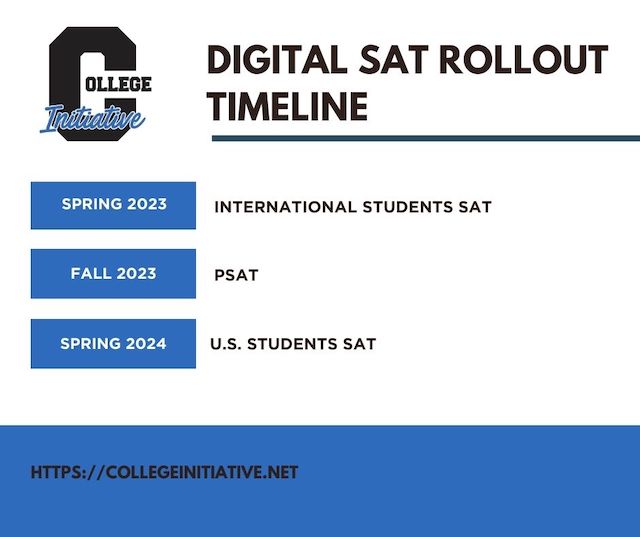How Important is Class Rank in High School for College Admissions?
Last Updated on October 22, 2024 by Jill Schwitzgebel
When it’s time to apply to college, students generally understand the importance of their grade point average (GPA) and college admissions test scores in the process. But does their class rank in high school also matter?
What is Class Rank?

Before talking about how colleges may or may not use high school class rank as part of their admissions process, make sure you understand what it is. It’s fairly straightforward. Class rank is a mathematical comparison of your student’s GPA to the other students’ in their class. If there are 100 students in the class, they are ranked from 1 – 100, with 1 having the highest GPA.
Class ranking takes into account the degree of difficulty of the courses students have taken. Generally, Honors and Advanced Placement courses are weighted more heavily than regular courses. So, a student that has straight A’s that has taken honors and or AP courses, will be ranked higher than a student who also has straight A’s, but no honors or AP courses.
Often, GPAs are shown on the report card in two ways: weighted and unweighted. The weighted GPA is the one that high schools use to rank students. The unweighted one is the one that colleges will look at, as high schools have different weighting systems. (Remember, they still care about academic rigor!)
Students’ class rank could change with every grading period, based on what courses they take and what grades they earned, relative to their classmates.
Does Every High School Use It?
NO. Roughly half of high schools in the country no longer use class ranking. It is most common in large public high schools. Even those schools have begun to do away with ranking for various reasons.
Some schools do still provide percentile ranking to students, but not exact rank. For example, they may let students know that they are in the 25th, 50th, or 75th percentiles. Or in some places, they will acknowledge that students are in the top 5th or 10th percentile, but do not provide any information beyond that cutoff.
Sometimes, schools do track rank and will provide it to colleges only upon request by the college. However, they will not disclose class ranking to the entire student population. Students can always check with their guidance counselors to see if that is how it is handled at their school, if the school does not provide rank on the report cards.
In Texas and California, class rank remains important as automatic admissions to public universities is based on students’ class ranking.
Why Would a School Choose Not to Use Class Rank?
There are a variety of legitimate reasons not to use class rank. One reason is that high schools may worry that ranking puts some students at a disadvantage for admissions and scholarships. Especially rigorous high schools want to avoid putting their students at a disadvantage when students are applying to college. For instance, a student could miss being in a very top percentile of their class due to having .01 lower GPA (or less!) than the student above them in ranking. That difference could mean that they miss out on opportunities, despite being equally qualified. I know of a high school where determining the valedictorian literally came down to the percentage score in one class – the student missed being named valedictorian by .5%.
Additionally, not every high school is the same. A student’s ranking at one high school is not the same as their ranking might be at another high school. And, some students at small high schools will have ten valedictorians, while a huge high school down the road may have just one, due to how the school computes rank. Rarely does class rank compare “apples to apples.”
Does Class Rank Matter for College Admissions?
Finally, we reach the real question. And the answer is – yes and no. Will colleges take class rank into account if the information is available to them? Probably. If the information is NOT available to them, will it hurt the student’s chances of being accepted? Absolutely not.
College admissions officers appreciate having many data points and class rank is one of those. However, they also understand that class rank does not tell the whole story. Admissions officers often know the high schools where applicants are coming from and know that the context of the high school environment is more important. They know if schools are known for grade inflation, for instance. If they are unfamiliar with your student’s high school, they will be especially interested in your high school’s profile.
They often discount the accuracy of ranking and simply consider it in context with other information available. To see whether it is an important factor at schools that your child is considering, you can google the college name and “Common Data Set” which lists factors that colleges consider and their relative importance.
But, admissions offices also worry that class ranking may cause students to take courses that they are not interested in just to try to increase their GPA. And in the process, it can cause students to neglect taking electives that they might truly enjoy, like maybe theater or band. They worry that taking an extra heavy load of college prep courses in pursuit of a high class rank means that the homework load will keep students from taking part in valuable extracurriculars. So they understand that class ranking may not be in students’ best interest.
Finally…
Remember, when looking at information about a college’s incoming class, if it includes class rank, take that information with a grain of salt. Just because a college says “X percent of incoming freshman were in the top 10% of their high school class,” does not mean that every applicant provided that information. In fact, last year, Swarthmore said that only 44% of incoming students provided class rank. You’ll note that class rank is not usually weighted heavily in colleges’ common data sets.
Overall, colleges are going to be most interested in how well the applicant did in college prep classes. If a college application asks for a student’s rank, and their high school does not provide that information, just leave it blank. You can always write a note about that in the “Additional Information” section. There is no reason to worry about not having that information available.









